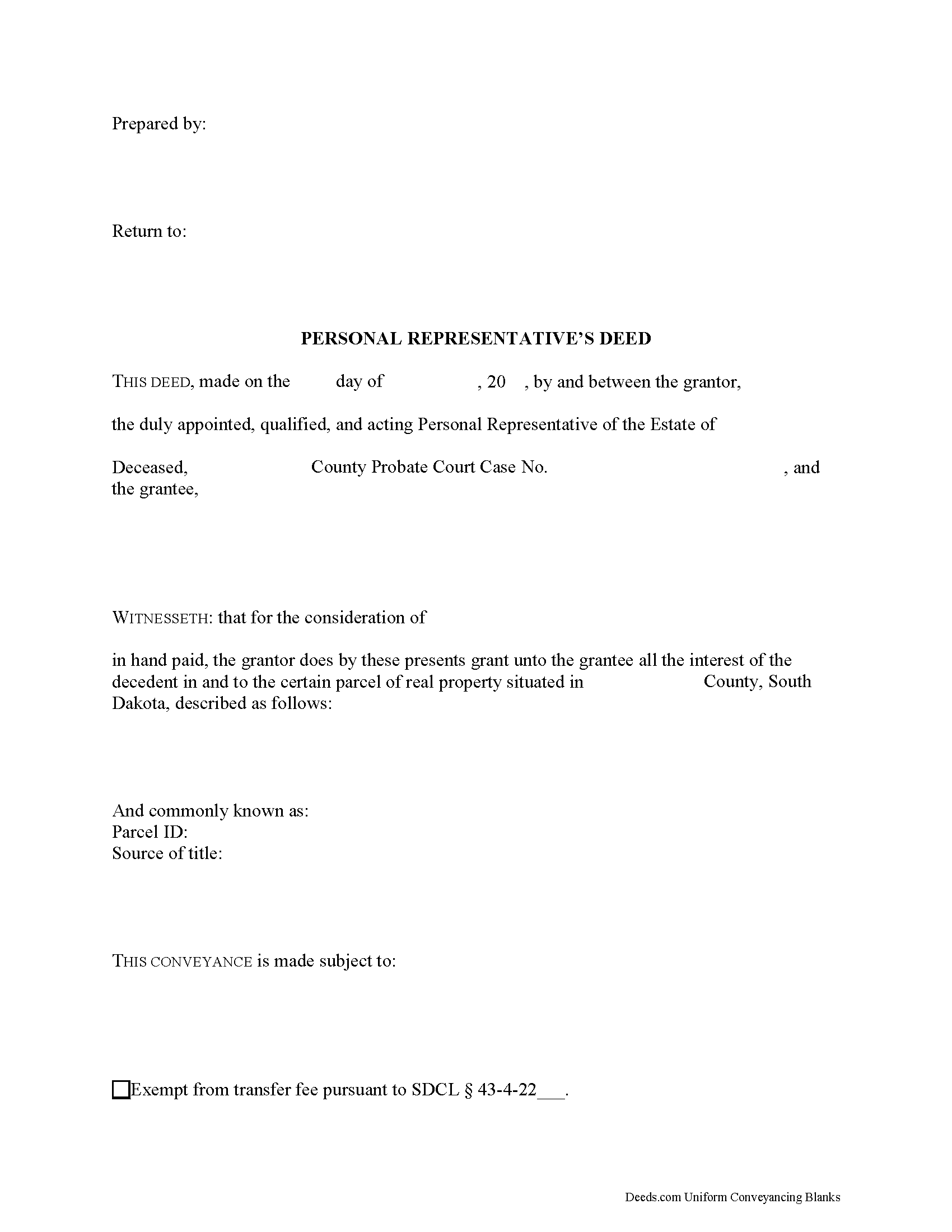Download South Dakota Personal Representative Deed of Sale Legal Forms

South Dakota Personal Representative Deed of Sale Overview

In South Dakota, title to a decedent's real property devolves upon death to the decedent's devisees (for testate estates) and heirs (for intestate estates) (SDCL 29A-3-101). Though title transfers by operation of law, the estate is still subject to administration in probate. Probate is the legal process of settling the decedent's estate and distributing assets to those entitled to receive them.
In probate proceedings, governed by Title 29A of the South Dakota Codified Laws, a personal representative is appointed to the estate by the probate court to act as the estate's fiduciary.
Once authorized by the probate court, a personal representative (PR) of an estate "has the same power over the title to property of the estate that an absolute owner would have, in trust however, for the benefit of the creditors and others interested in the estate," which "may be exercised without notice, hearing, or order of court." (29A-3-711).
During estate administration, the PR may be required to sell realty to make payment of claims on the estate, to cover expenses of administration, or to liquidate the estate to facilitate easier distribution. SDCL 29A-3-715 entitles the PR to sell real property and execute deeds of conveyance.
To transfer title following a sale, the PR executes a personal representative's deed. When recorded, the deed transfers an estate in fee simple to the grantee with covenants that, at the time of conveyance, the estate is free from encumbrances done, made, or suffered by the grantor, or any person claiming under him, and that, prior to executing the conveyance, the grantor has not conveyed the estate to any other person (43-25-10).
In a personal representative's deed, the PR is named as the granting party. To properly transfer title, the deed must contain the grantee's name, marital status, address, and vesting information. PR deeds also recite information concerning the probated estate, including the decedent's name, the county of probate, and the case number assigned to the estate by the court.
As with any conveyance of an interest in real property, the deed recites the consideration the grantee is making for the transfer; the full legal description of the subject parcel; and the derivation of title. Any restrictions should be noted on the face of the deed, along with any exemption claimed to the transfer fee imposed by SDCL 43-4-21. Finally, the form must meet all state and local standards for recorded documents.
The PR must sign the deed in the presence of a notary public before recording in the Register of Deeds office of the relevant county.
Consult an attorney with questions regarding personal representative's deeds, or for any other issues related to probate in South Dakota, as each situation is unique.
(South Dakota PRDOS Package includes form, guidelines, and completed example)